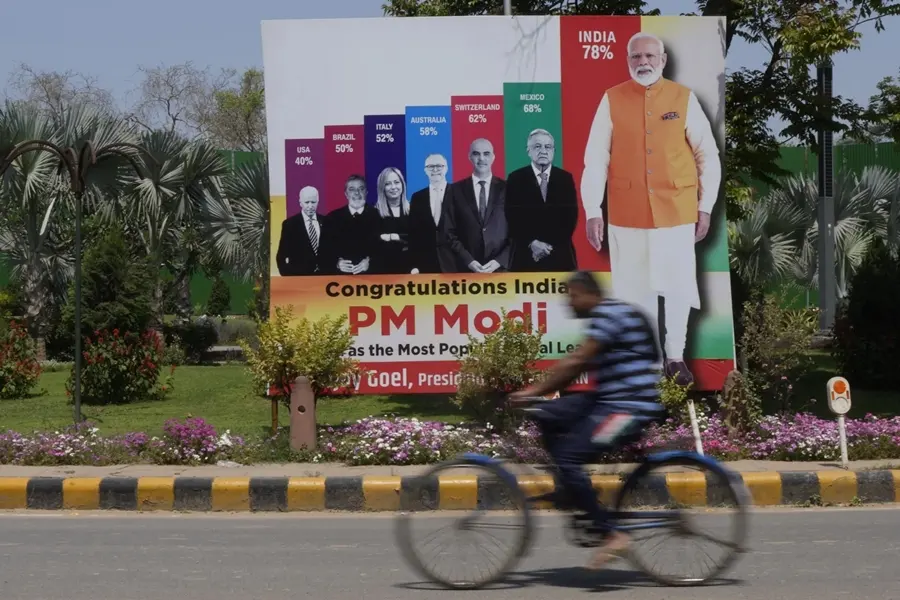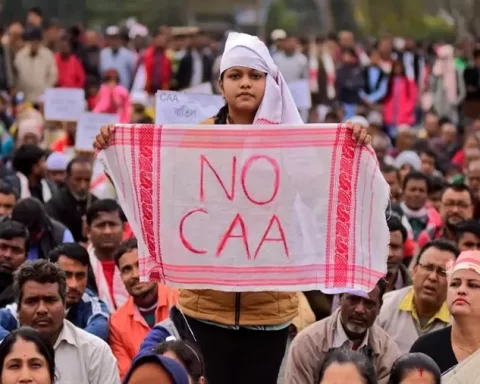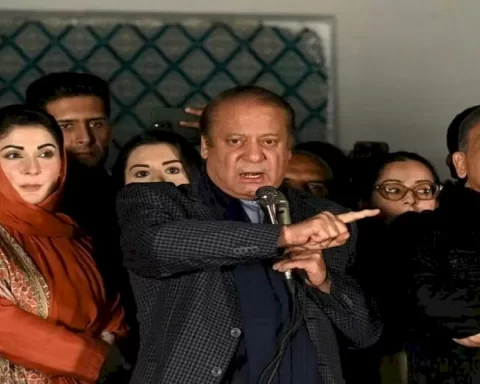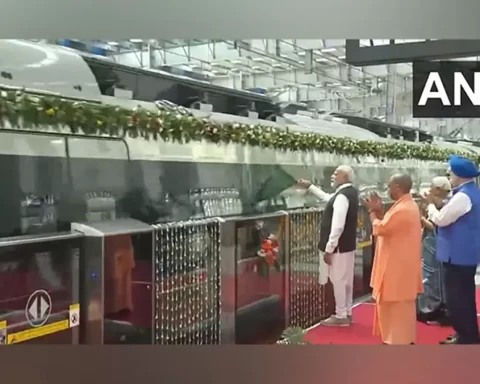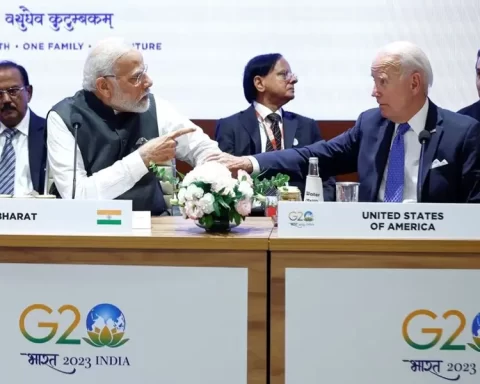NEW DELHI (AP) — Major roads in New Delhi are teeming with giant posters and billboards announcing India’s presidency of this week’s G20 summit of the Group of 20 nations. And one leader’s picture — smiling benignly from every traffic circle — stands out from the rest: Prime Minister Narendra Modi.
Modi is also on the front page of major newspapers, and Indian TV channels are flashing his picture, accompanied by the Hindi word “Vishwaguru” — a leader of the world. In public speeches, his ministers are touting him as a steward of a surging India.
It is an unabashed homage to the populist prime minister and staunch Hindu nationalist, who is celebrated by his supporters and by his party as someone who is leading a developing nation of more than 1.4 billion people to a bright new future.
But this advertising blitz also displays the personal ambitions of Modi, who in the past has used the optics of New Delhi’s growing geopolitical clout and foreign policy triumphs to consolidate power. Experts say while India’s presidency of the summit represents a moment of pride for the country, Modi’s government has also used it to market the leader’s image and elevate his party’s prospects ahead of a national vote scheduled for next year.
“Modi is positioning himself as a global statesman, a global thought leader … and the voice of a rising India. And all of this, I believe, is designed to feed into the Modi personality cult, which is a very expertly created, very well marketed cult, designed to appeal to a demographic which will be very swayed by these promises of rising India,” said Sagarika Ghose, a political analyst.
The Sept. 9-10 summit, which groups the world’s 19 wealthiest countries plus the European Union, is particularly important for Modi ahead of the 2024 election, and a strong show will allow his ruling Hindu nationalist party to project power domestically.
Ahead of the summit, historical monuments, airports and major landmarks are projecting this year’s G20 logo — an image of a globe inside a lotus, using the colors of the Indian flag. The opposition says it is no coincidence that the lotus is also the election symbol of Modi’s Bharatiya Janata Party.
Indian officials have also conducted events showcasing India’s contributions to the world, including yoga and a highly successful government-run digital transactions system. Schools have been told to hold quiz competitions regarding the G20. And Modi himself, during his periodic radio talk show called “Maan Ki Baat,” or “Straight from the Heart,” said “the month of September is going to witness the potential of India.”
Meanwhile, his ministers have made it clear that the prime minister is to be credited for the summit.
“If G20 has come to the country during his (Modi’s) time and it is completed with success, then he must get the credit,” his powerful home minister, Amit Shah, told a wire service in February.
The rotating presidency of the G20 is mostly symbolic and the summit’s success often depends on a final communique. This time, however, none of the several meetings held in India has yet produced one, with deadlock persisting over wording on Russia’s war in Ukraine.
Nonetheless, the Modi government has gone into high gear, promoting India as a bridge to the developing world and arguing it is well-placed to tackle issues of climate change, terrorism and the debt crisis. His administration is also highlighting India’s position as a growing power courted by major Western countries, particularly after U.S. President Joe Biden’s state visit in June.
Along the way, Modi’s government has also presented him as the man responsible for India’s economic successes, including its advancements in solar power, digital payments technology and its recent feat of making a successful uncrewed landing near the south polar region of the moon, which is seen by Indians as a major foreign policy triumph.
India’s foreign policy has seen significant strides under Modi, but he remains a divisive figure at home, with critics calling him an enabler of assaults on India’s democratic and religious freedoms and its independent institutions. And even though his government has managed to finely balance its position on Russia’s war in Ukraine, the resurgent opposition says it has done very little to counter a belligerent China after a border dispute between the two Asian powers led to deadly clashes in 2020.
Still, Modi enjoys massive popularity among his supporters who see him as a leader taking India to the global stage.
“This is the first time the world has come to know that India can take a stand for herself. India will do what is in the interest of India,” said Ajay Sahai Jasra, a media professional who is a Modi voter.
Milan Vaishnav, director of the South Asia Program at the Carnegie Endowment for International Peace, said “the transition that Modi is trying to effect is to turn India into a big and important country,” marking an “important shift … in the nature of domestic politics in India.”
“I do think there is a general sense among the populace that India is reclaiming an important leading role on the global stage,” Vaishnav said.
Globally, though, this sentiment is quite nascent.
A recent Pew Research Centre survey of over 30,000 people across 24 countries, conducted between February and May, showed 40% saying they lacked confidence in Modi to do the right thing in world affairs, while 37% were confident that he would.
Ghose, the political analyst, said the G20 publicity is also ignoring much deeper problems India is facing under Modi, “like backsliding of democracy, restrictions on human rights activists, the jailing of dissenting voices and the muzzling of the media.”
Yet, the summit will be beneficial for Modi, she said.
“He will be rubbing shoulders with President Joe Biden. He will be in the company of other global leaders. I think it will help him going forward into the elections of 2024,” Ghose said.

